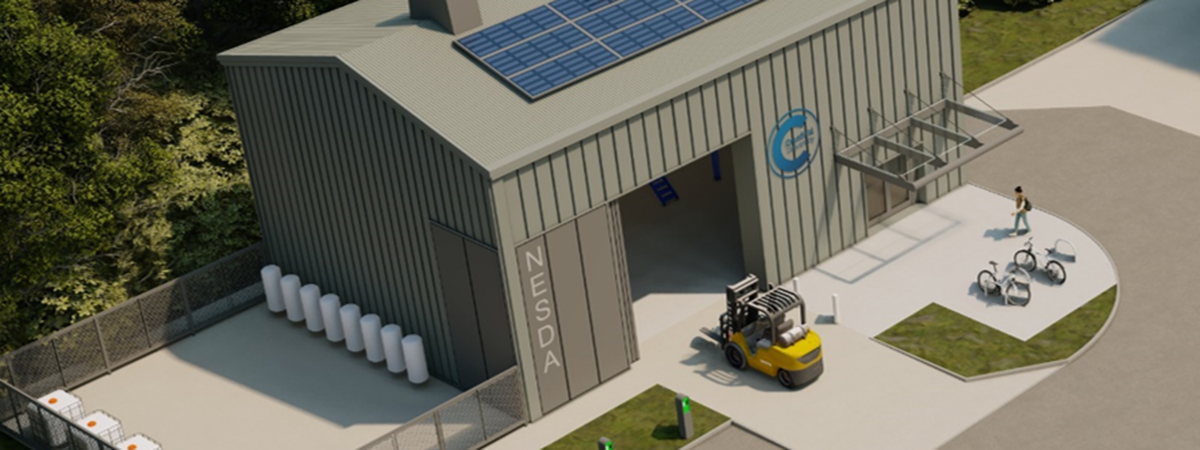
- First of its kind national test facility to accelerate development of sustainable low-carbon fuels to power transport and heat homes of the future
- A £500,000 grant from the Wolfson Foundation will help Cranfield establish the National Environment Sector Decarbonisation Accelerator (NESDA) test facility
- NESDA will seek to help industry transition from fossil fuels to low-carbon renewable energy
- The facility is part of Cranfield University's efforts to drive innovation in the environmental sector and support the UK's goal to achieve net zero emissions by 2050
Cranfield University will establish a new national centre for the research of waste derived fuels from the environment sector – following a £500,000 grant from the Wolfson Foundation.
The National Environment Sector Decarbonisation Accelerator (NESDA) test facility will be the first of its kind dedicated to developing synthetic fuels and zero carbon fuels from waste. These new fuels will help to decarbonise heating and transport, two challenging areas which must be addressed to achieve net zero.
The centre will research ways of generating heat and transport fuels from household food waste, agricultural residues, and industrial waste. Researchers will study how these sources of fuel can help displace fossil fuels in the transportation, industrial, and residential sectors.
The method deployed means the alternative fuel sources will replace fossil fuels without the need to modify existing engines or infrastructure. The waste being utilised is widespread across the UK, and so the fuel is readily available with no investment required in the distribution network. Alongside this, the waste will also be used to produce zero carbon fuels in the form of ammonia and hydrogen.
Ewan McAdam, Professor of Membrane Science and Technology at Cranfield University, said: "The establishment of the NESDA test facility represents a significant milestone in the UK's efforts to decarbonise our economy.
"The facility will help industry accelerate the development and deployment of low-carbon technologies from the environment sector, helping to reduce emissions across a range of sectors. Cranfield University has a long history of working with industry partners to develop sustainable technologies, and we are proud to be at the forefront of this important work."
The NESDA test facility is scheduled to open in 2025 and Cranfield University is seeking partners to ensure that the full potential of the facility is realised.




